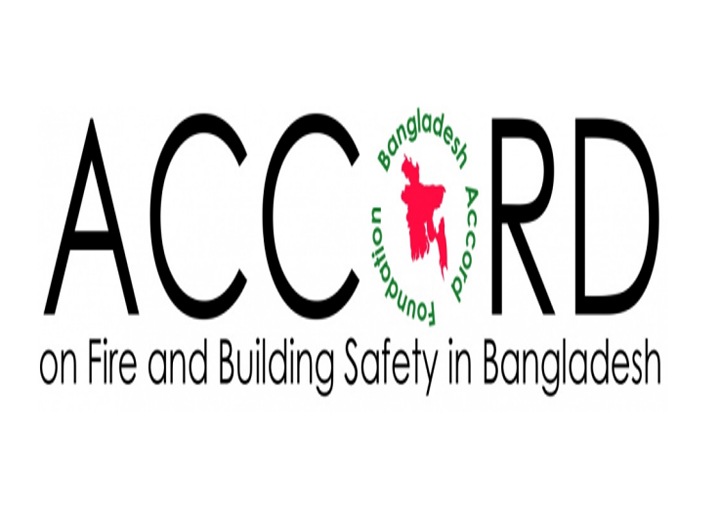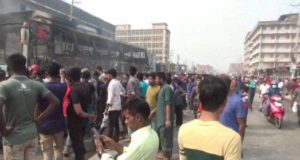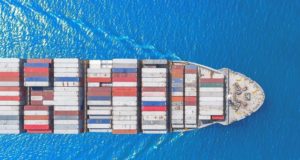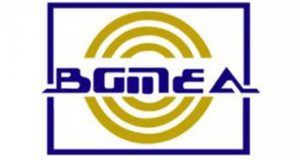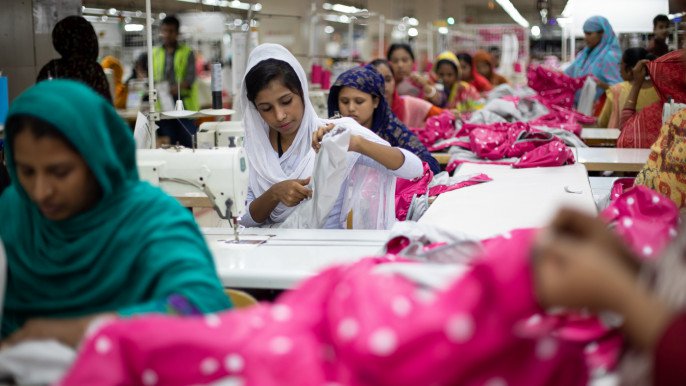Published in the Daily Star on 17, September 2017
Two global rights groups, Industri-ALL and UNI Global Union, have asked the Western clothing brands to hasten the signing of the second Accord agreement as the response from potential signatories is still lukewarm.
The 2018 Bangladesh Accord, which will cover more than 1,160 garment factories, was announced by the global unions and brand representatives at the meeting of the Organisation for Economic Co-operation and Development in Paris in June.
However, until now only 30 brands have signed up for the new Accord, which is three years long and will go into effect once the current one expires next May.
The two global unions are calling on brands to sign up by October 5 before the World Day for Decent Work on October 7.
“While many brands talk about supply chain transparency and social responsibility, those are just empty words without accountability,” said Christy Hoffman, deputy general secretary of UNI.
“The Bangladesh Accord is the only platform that is legally binding, and its track record of life-saving remediation is proof of the effectiveness of this model,” she added.
The new Accord builds on the achievements of the first one and maintains the legally binding framework and commitment to transparency.
It also adds new layer of worker protection and ensures that many more factories will be inspected and renovated as signatory brands add on suppliers. An important element of the 2018 Accord is to work towards handing over its functions to an appropriate national regulatory body, once that is in place.
IndustriALL and UNI are committed to working with and supporting the government and the Bangladesh Garment Manufacturers and Exporters Association to ensure that happens as soon as possible.
Unions, non-governmental organisations and brands announced the first Bangladesh Accord in the weeks following the Rana Plaza collapse in 2013, which claimed the lives of more than 1,100 people, injuring 2,500 more.
Under the first Accord, engineers carried out fire, electrical and structural safety inspections at more than 1,800 factories, identifying 118,500 hazards. Up to 79 percent of the workplace dangers identified in the Accord’s original round of inspections have been remediated.
“Our work must continue in Bangladesh because the Accord is still the only credible option to ensure structural integrity and fire safety in garment factories,” said Jenny Holdcroft, assistant general secretary of IndustriALL.
Not enough factories have been fully remediated and too many life-threatening safety issues remain uncorrected, she said in a statement.
The brands that have so far signed the 2018 Accord on Fire and Building Safety in Bangladesh are: Adidas, Aldi North, Aldi South, Auchan, Bestseller, C&A, Camaïeu, Carrefour, Comtex, Designworks, ESPRIT and H&M.
The other retailers and brands are HEMA, HKG Garment Solution, Hugo Boss, Inditex, Karstadt, KiK, Kmart Australia, LC Waikiki, Lidl, Loblaw, New Agenda by Perrin, Otto, Primark, PVH, Rewe Group, RNB Retail and Brands (Sweden), Shoeby, Specialty Fashion Group, Tally Weijl, Target Australia, Tchibo, Top Grade International, Van der Erve, Vetta and WE Fashion. However, the government is yet to respond positively in favour of the second Accord.
In the meantime, the local garment manufacturers have already submitted a proposal to the government for formation of a factory inspection and remediation agency similar to the foreign retailers’ Accord and Alliance to strengthen workplace safety.
Once registered under relevant laws, the platform, to be called ‘Shonman’, would be run under the guidance of a legal representative of the Prime Minister’s Office.
The local platform will also have a steering committee comprising representatives from organisations such as the BGMEA, the BKMEA, the ILO, brands, trade unions and the commerce and labour ministries.
 CPD RMG Study Stitching a better future for Bangladesh
CPD RMG Study Stitching a better future for Bangladesh
